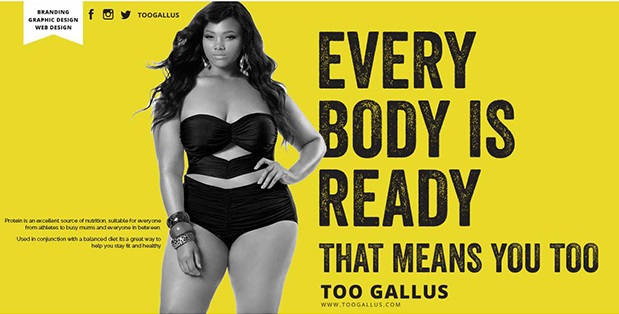
Bullies suck. I think most of us can agree on that. Those who don’t probably haven’t been on the receiving end of a bully at some point in their lives. They’re the lucky ones. Most of us can’t rely on that kind of luck.
Now, before I go any further, I want to make clear that this isn’t some generic anti-bullying PSA. There are already way too many of those and even if their intentions are good, they don’t always send the right message.
That has been my experience with these campaigns. They claim to understand the dynamics of bullying. They offer a list of responses and recourses, some of which are more helpful than others. Some are downright counterproductive. They all miss one key detail.
Every bullying situation is different.
Every bully is different.
Every target of a bully is different.
The dynamics behind every instance of bullying is different.
In short, not every case of bullying plays out the same way and there’s no one proper way to deal with it. Not every bully is Biff Tannen and not every victim is George McFly. One well-placed punch isn’t going to completely rectify a situation. Just ignoring it won’t rectify it, either.
With that in mind, I’d like to share another personal story about how I dealt with a bully. It’s not nearly as dramatic as you might see in the movies, but it worked out in my favor for the most part. In fact, to say it worked out might be a bit of a stretch. You’ll understand why when you hear the details.
This incident played out when I was in the 9th grade. It was not a good time for me. I was depressed, socially awkward, and had pretty much no self-esteem. I also had a bad attitude that made me fairly unpopular and an easy target. In hindsight, I think it was only a matter of time before a bully found me.
For the sake of this story, let’s call this kid Don. He was no Biff Tannen, but he was a real asshole. This kid was my age, but he was behind the curve when it came to maturity. He and a bunch of like-minded friends liked to goof off, screw with people, and do their own thing. They weren’t exactly caricatures from 80s teen movies, but they were close.
As it just so happened, Don rode the same bus as I did. In fact, he got off at the same stop that I did. He lived less than two blocks from me. Due to that proximity, he took an interest in me. He started teasing me and asking dumb, embarrassing questions. Sometimes he did it on the bus. Sometimes he did it in the middle of a class. Whenever he did it, I hated it.
Me being the immature, self-loathing kid that I was, I didn’t deal with it very well. I often tried to tell him off. I cussed him out. That only seemed to encourage him. I never tried to fight him, but I’d be lying if I said I wasn’t tempted.
It also helped, somewhat, that I wasn’t in good shape and would probably lose that fight. Don was no athlete, but he was bigger than me and willing to do dumb shit to win. I had no advantages, whatsoever.
I still wanted it to stop. I had enough problems in my life. I didn’t need to deal with Don and his antics. I wasn’t sure how I was going to deal with it. I got some advice from the adults in my life. They often told me to just ignore him and avoid him. If he ever laid a hand on me, then I should go to a school administrator. I didn’t want it to get to that point.
Unfortunately, ignoring Don didn’t make him stop. If anything, it encouraged him to keep doing it. He didn’t get bored. He just saw someone he could tease and get away with. That wasn’t something the anti-bullying PSAs told me.
At some point, I had to respond. Yelling at him wasn’t working. Trying to politely ask him to stop wasn’t working. This was an immature knuckle-head who wasn’t going to be reasoned with. If I was going to respond, it had to be very blunt and very effective.
It finally came to ahead one day on the bus. We were waiting to leave to go home for the day. Like he had before, Don decided to move up to my seat and start harassing me. I don’t remember what he said. I just remember he wouldn’t go away. He kept asking me these dumb question and teasing me when I didn’t respond.
He just would not stop and he would not leave. I was tempted to punch him in the face, but I knew that probably wouldn’t pan out. If I threw the first punch, then I would be blamed for everything. I may have been young, but I knew how school politics work.
Finally, I decided to respond.
I didn’t punch him.
I didn’t break something he had on him.
Instead, I just looked at him with as much hate as I could muster and I spit right in his eye.
At that moment, Don’s goofy and immature demeanor disappeared in an instant. He turned away to rub his eye. I wasn’t sure if he was crying or anything. At the time, I honestly didn’t care. I didn’t move from where I sat. I just remained where I sat, waiting for a response.
Eventually, I got it. He tried to spit at me too. He missed, only hitting my ear. After that, he left and went to the back of the bus with his friends.
That was it.
That was the end of it. Don never talked to me ever again.
Now, I do not recommend anyone do that with a bully. Spitting in someone’s eye isn’t as bad as a punch, but it still counts as assault. Had Don gone to a school administrator, he could’ve gotten me into a lot of trouble. However, he didn’t and I think I know why. He would’ve had to explain why the situation got so heated and since he instigated it, he would’ve gotten in trouble too.
Even so, I’m not proud of what I did. I didn’t feel better about myself. I doubt Don felt better, either. Had there been more witnesses or had someone reported us, it could’ve gotten much worse. At the same time, I could’ve handled that much better, even for a moody teenager.
Again, do not take this as advice for dealing with a bully. There’s a good chance it will not work out as well as it did for me. I got lucky in this case. Don’t expect to get that lucky when dealing with a bully.
Also, Don, if you’re reading this, I apologize for spitting in your eye. However, you were still a huge asshole.































